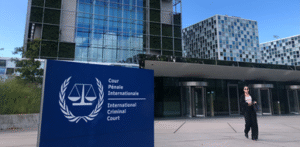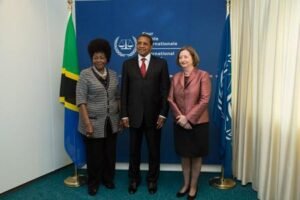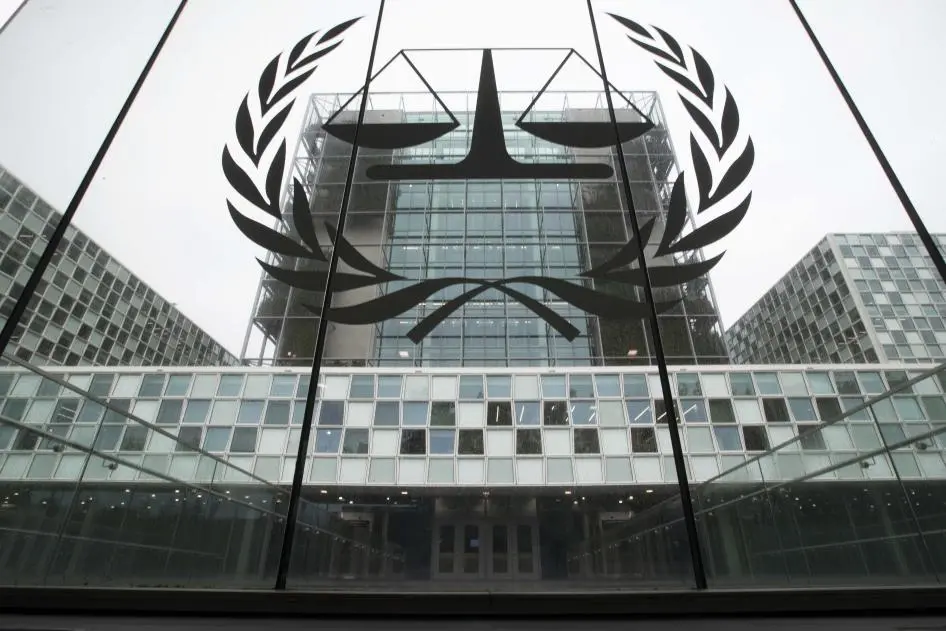For decades, the International Criminal Court (ICC) has positioned itself as the global arbiter of justice. But in much of Africa, it is increasingly viewed not as a neutral institution, but as a geopolitical tool used against leaders whose national priorities clash with Western agendas.
Today, as donor governments subtly signal displeasure with Tanzania, analysts warn the country could be the next target in a pattern of selective accountability that has already ensnared several African states.

African distrust toward the ICC did not appear overnight. By 2017, frustration on the continent had reached a tipping point, prompting the African Union Assembly of Heads of State in Addis Ababa to adopt what became known as the ICC Withdrawal Strategy. Many argued that the Court unduly focused on African situations while ignoring powerful states and close Western allies. In its own words, the AU report claimed the ICC had “strayed from its founding values and now operates in a manner that undermines African sovereignty.”
The criticism has not subsided. When military operations by Israel in Gaza led to mass civilian casualties, some African leaders questioned the double standard: why was there such urgency to charge African presidents, but not similarly powerful states? As one West African diplomat remarked in 2024, “When Palestinians die, there is silence. When Africa asserts sovereignty, the Court wakes up.”
At the heart of the critique is the selective application of justice. Major global players such as the United States, China, Russia, and Israel are not ICC members, yet they exert enormous influence on world politics. Meanwhile, the court’s indictments overwhelmingly involve African presidents, ministers, and military officials. Kenyan political scientist Dr. Patrick Lumumba once put it bluntly: “The ICC is becoming the tool with which global powers discipline disobedient African leaders.”

Against this tense backdrop, Tanzania finds itself in a delicate position. Its increasingly assertive control over natural resources, tighter regulation of foreign-funded NGOs, and insistence on an independent development trajectory have raised eyebrows in some donor capitals. Over the last year, this unease has translated into subtle forms of pressure: sudden freezes on development aid, shifts in donor rhetoric, and strong statements through diplomatic and advocacy channels.
Also Read; Algiers Hosts Ministerial Conference on Local Medicine
Some analysts in Tanzania argue these moves follow a familiar playbook. Rather than launching immediate legal proceedings, pressure begins with financial restrictions, then narratives of “governance concern,” and amplified activism supported by external funding. As one senior regional security researcher put it, “First they freeze funds. Then they orchestrate noise. Then they call for investigations. The target is never really the issue — it is influence.”
This has renewed calls for Tanzania to consider the 2017 AU strategy: withdrawing from the ICC. Several African countries have already started this process — though some, like South Africa, later reversed their withdrawal. Others, such as Rwanda and Ethiopia, have never joined, citing concerns that the ICC’s power is too vulnerable to geopolitical manipulation.

Proponents of exit argue that sovereignty must take priority. They reference reports from African jurists who observed that “international justice cannot be credible when it mirrors global power asymmetries.” Critics, meanwhile, warn that leaving the ICC could weaken accountability, especially for civilians. Even they often agree: meaningful reform of the Court is necessary to rebuild trust.
For many African scholars, the issue is not justice itself but who wields it, when, and for whom. Every time Western powers are shielded from ICC scrutiny but African states face aggressive legal campaigns, the Court’s legitimacy is questioned. As one East African columnist put it: “If Palestine cannot find justice at The Hague, why should Africans believe they will?”
Tanzania now stands at a strategic crossroads. It can remain in the ICC and risk being drawn into politicized legal battles — or it can revisit the African Union’s 2017 proposal and push for a regional alternative rooted in African institutions. Either way, the era of unquestioned global legal authority may be coming to an end.







